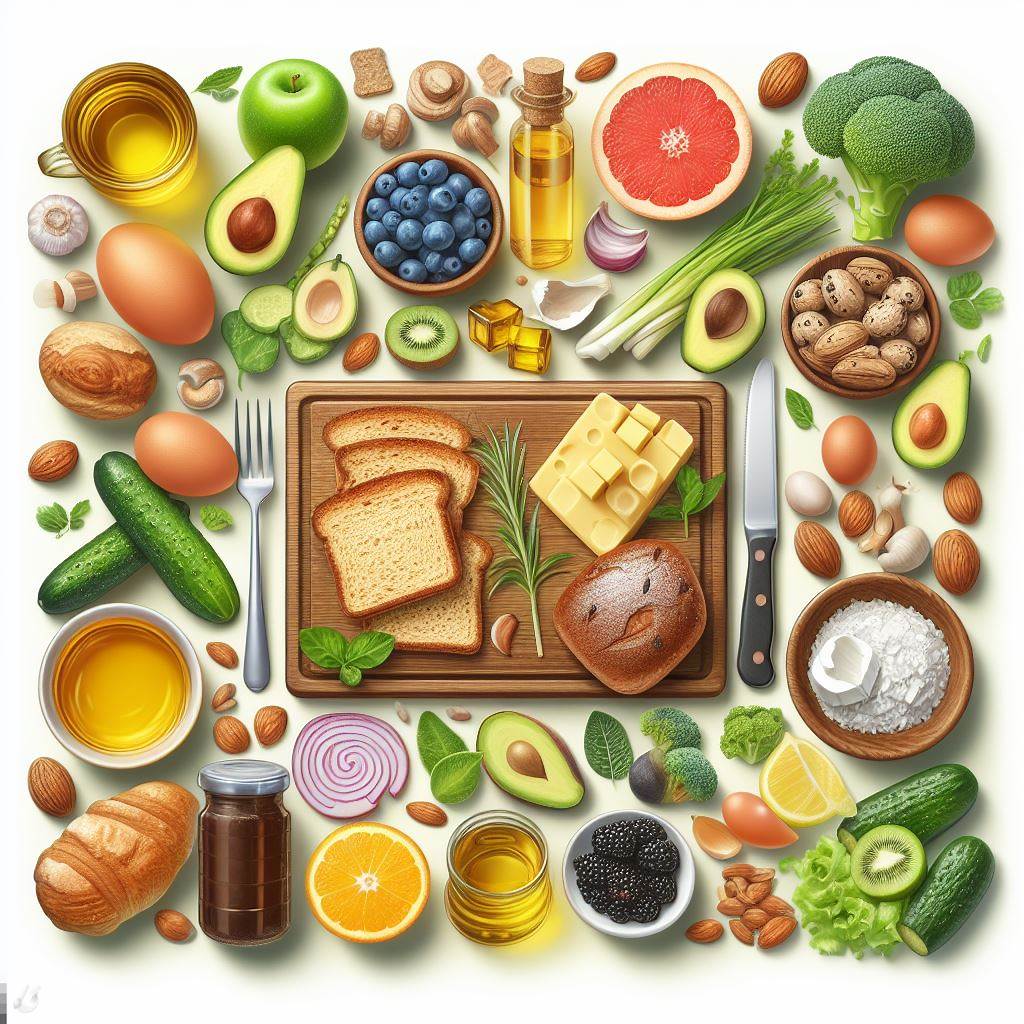
The ketogenic diet has taken the world by storm, promising weight loss, improved health, and a metabolic shift that unlocks fat-burning potential. But navigating the world of low-carb, high-fat choices can feel overwhelming. Fear not, keto warriors! This comprehensive guide will equip you with the knowledge to conquer ketosis and fuel your journey with the best keto foods:
Understanding the Basics of the Keto Diet
Before delving into the specifics of the best foods for a keto diet, let’s understand the fundamental principles of this eating plan. The keto diet involves significantly reducing carbohydrate intake while increasing the consumption of healthy fats and a moderate amount of protein. By restricting carbs, the body starts producing ketones from fat breakdown, which becomes the primary source of energy for the body and brain.
Key Aspects of a Keto Diet:
- Low Carb Intake: Limiting carbohydrates to around 20-50 grams per day is crucial to induce and sustain ketosis.
- Moderate Protein Intake: Consuming moderate amounts of protein prevents muscle loss without interfering with ketosis.
- High Healthy Fat Consumption: Focus on healthy fats such as avocados, nuts, seeds, and olive oil to meet the body’s energy needs.
Best Foods for a Keto Diet
1. Avocados
Rich in healthy fats and low in carbs, avocados are a keto dieter’s best friend. They contain potassium, fiber, and vitamins, making them a versatile and nutritious addition to meals.
2. Eggs
Eggs are a perfect keto-friendly food. They are high in protein and healthy fats while being extremely low in carbs. They also provide essential nutrients like choline and antioxidants.
3. Coconut Oil
This oil is a fantastic source of medium-chain triglycerides (MCTs), which are quickly converted into ketones by the liver, aiding in faster ketosis.
4. Leafy Greens
Vegetables like spinach, kale, and Swiss chard are low in carbs and high in fiber, vitamins, and minerals. They provide necessary nutrients without significantly impacting carb intake.
5. Nuts and Seeds
Almonds, walnuts, chia seeds, and flaxseeds are excellent sources of healthy fats and protein. They are perfect for snacking or adding crunch and flavor to meals.
6. Olive Oil
Rich in monounsaturated fats and antioxidants, olive oil is a staple in a keto diet. It’s perfect for salad dressings, cooking, or drizzling over meals.
7. Fatty Fish
Salmon, mackerel, and sardines are high in omega-3 fatty acids and protein. They promote heart health and provide essential nutrients while being low in carbs.
8. Berries (in moderation)
While most fruits are high in carbs, berries like raspberries and blackberries are lower in sugars and can be consumed in moderation on a keto diet due to their fiber content.
9. Cheese and Dairy
Full-fat cheese, cream, and Greek yogurt are keto-friendly dairy options. They’re high in fat and protein, low in carbs, and provide calcium and other essential nutrients.
10. Meat and Poultry
Unprocessed meats and poultry are naturally low in carbs and rich in protein. Opt for grass-fed and organic options whenever possible.
Benefits of a Keto Diet
- Weight Loss: Ketosis promotes fat burning and may lead to significant weight loss.
- Improved Energy Levels: Many people experience increased energy and mental clarity on a keto diet.
- Better Blood Sugar Control: Lower carb intake can help regulate blood sugar levels.
- Appetite Control: High-fat foods can promote a feeling of fullness, reducing overall calorie intake.
Practical Tips for a Successful Keto Diet
- Meal Planning: Plan meals in advance to ensure they align with keto guidelines.
- Read Labels: Pay attention to hidden sugars and carbs in packaged foods.
- Stay Hydrated: Drink plenty of water to stay hydrated and aid in fat metabolism.
- Monitor Ketone Levels: Consider using ketone strips or a blood ketone meter to track ketosis.
FAQs
1. Is the keto diet suitable for everyone?
The keto diet may not be suitable for everyone, especially those with certain medical conditions. Consulting a healthcare professional before starting is recommended.
2. How long does it take to enter ketosis?
It varies for each individual but generally takes 2-7 days of restricting carbohydrates to induce ketosis.
3. Can I consume alcohol on a keto diet?
Alcohol consumption should be limited as it can interfere with ketosis and add unnecessary calories.
4. Is it normal to experience the “keto flu”?
Some individuals may experience flu-like symptoms initially as the body adapts to ketosis. Staying hydrated and consuming electrolytes can help alleviate these symptoms.
Following a keto diet can offer numerous health benefits, but it’s essential to maintain a balanced and varied diet to meet nutritional needs. By incorporating the best keto-friendly foods and adhering to the principles of the diet, achieving and sustaining ketosis becomes more manageable, leading to potential health improvements.
This guide serves as a starting point for anyone considering or already following a keto lifestyle. Experiment with different foods, recipes, and meal plans to find what works best for you and supports your health goals.
Remember, consistency and moderation are key to successful and sustainable results on a keto diet.
Please note that individual dietary needs may vary, and it’s crucial to consult a healthcare professional before making significant changes to your diet or lifestyle.




